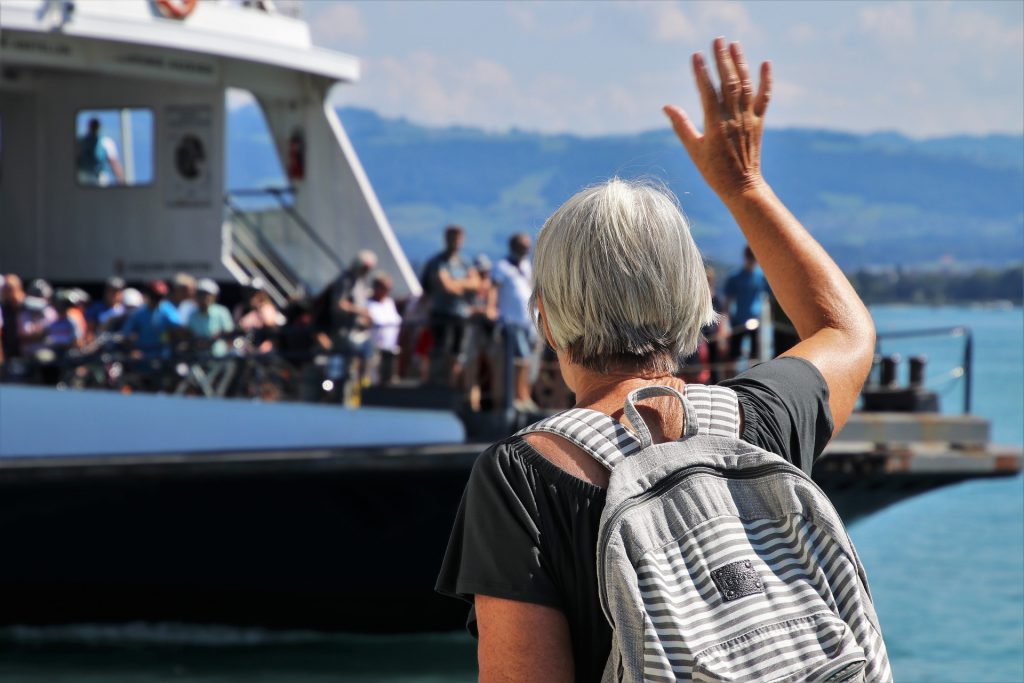
1st TUR4all International Congress on Accessible Cruise Destinations, conceived to promote solutions to bring about accessible tourism to be held in Valencia on 2-3 December
Feel the wind in your face, smell the salt, see the seagulls swooping and squawking near the coast. Arrive to a port aboard a cruise ship and disembark to be able to discover and delight in a new destination. Something so simple can nevertheless be a formidable challenge for certain people, even more so if the port in question is not an accessible one. The aim of the 1st TUR4all International Congress on Accessible Cruise Destinations to be held on 2-3 December in Valencia, is to raise awareness of the issues and topics like this will be debated. The disabledaccessibletravel web page carried out an analysis of accessibility in Spanish ports and have determined that in Spain there are at least 6 cruise ports that are adapted to the needs of all visitors. Do you know where they are and what makes them stand out from the rest?
Embarking and disembarking a cruise ship may at first glance appear to be a simple task, but for certain individuals, it can be tremendously difficult. Cruise ports should be accessible for everyone, including the elderly, couples with children, and people with some type of disability or reduced mobility.
In Spain, there are at least 6 ports that meet accessibility requirements. Barcelona, Valencia, Malaga, Mallorca, Cartagena and Cadiz are the ports whose facilities best cater to everyone’s needs. With Francisco J. Sardón, President of PREDIF, we review the minimum space required for a port to be considered accessible
Bathroom facilities. One of the key characteristics they share is that they provide different accessible bathroom facilities, specifically designed with wheelchair users and people with reduced mobility in mind. These amenities provide cruise passengers who disembark with the independence, ease and safety that we all need. According to Francisco J. Sardón “to be able to have access to a toilet is a basic right for everyone and it should be equipped with the support tools and equipment set out in accessibility rules and regulations”.
Wide doorways. To give a greater degree of independence, to move from one place to the next, access to port terminals should have sufficient space to allow for the entry and exit of wheelchair users or those with children in pushchairs. In this regard, President of PREDIF pointed out that “openings should be sufficiently wide to allow anyone to pass through them, regardless of their type of wheelchair or children’s pushchairs. This also makes it easier for passengers with baggage to get through. Accessibility is for the good of everyone”.
Ramps and lifts. At times, what can at first appear to be a simple set of stairs becomes a Mount Everest. This is why it is essential to have elements that help to get navigate them. “A stairlift, a lift or a lift platform allows anyone to easily navigate between different levels or floors. They are supports that should be fitted everywhere stipulated by law.”
Accessible transport. Just as important as eradicating barriers is having an adapted vehicle to be able to get around the port safely. Whether it be the shuttle service if required, such as heading into the city. Presently, a high percentage of people with reduced mobility do not get off the ship, not because they don’t want to, but because the options for doing so are limited. President of PREDIF, Francisco J. Sardón pointed out that “in certain ports getting from the ship to the land is a major accomplishment, while in many cities, the modes of transport are not accessible: there are no low-floor buses with ramps, there are no adapted taxis, and even the buses on excursions organised by the tour companies themselves are not adapted …All this makes it very difficult for cruise passengers to get around independently at the destination”.
All this, and so much more will be tackled at the 1st TUR4all International Congress on Accessible Cruise Destinations, which will be held on 2-3 December at the Santos Las Arenas Hotel in Valencia. An event being organised by PREDIF together with the Region of Valencia Tourist Board, AISM – Italian Multiple Sclerosis Association -, Accessible Portugal with the backing of ENAT -European Network for Accessible Tourism- and Cruises News Media Group. Because accessibility is synonymous with quality.


